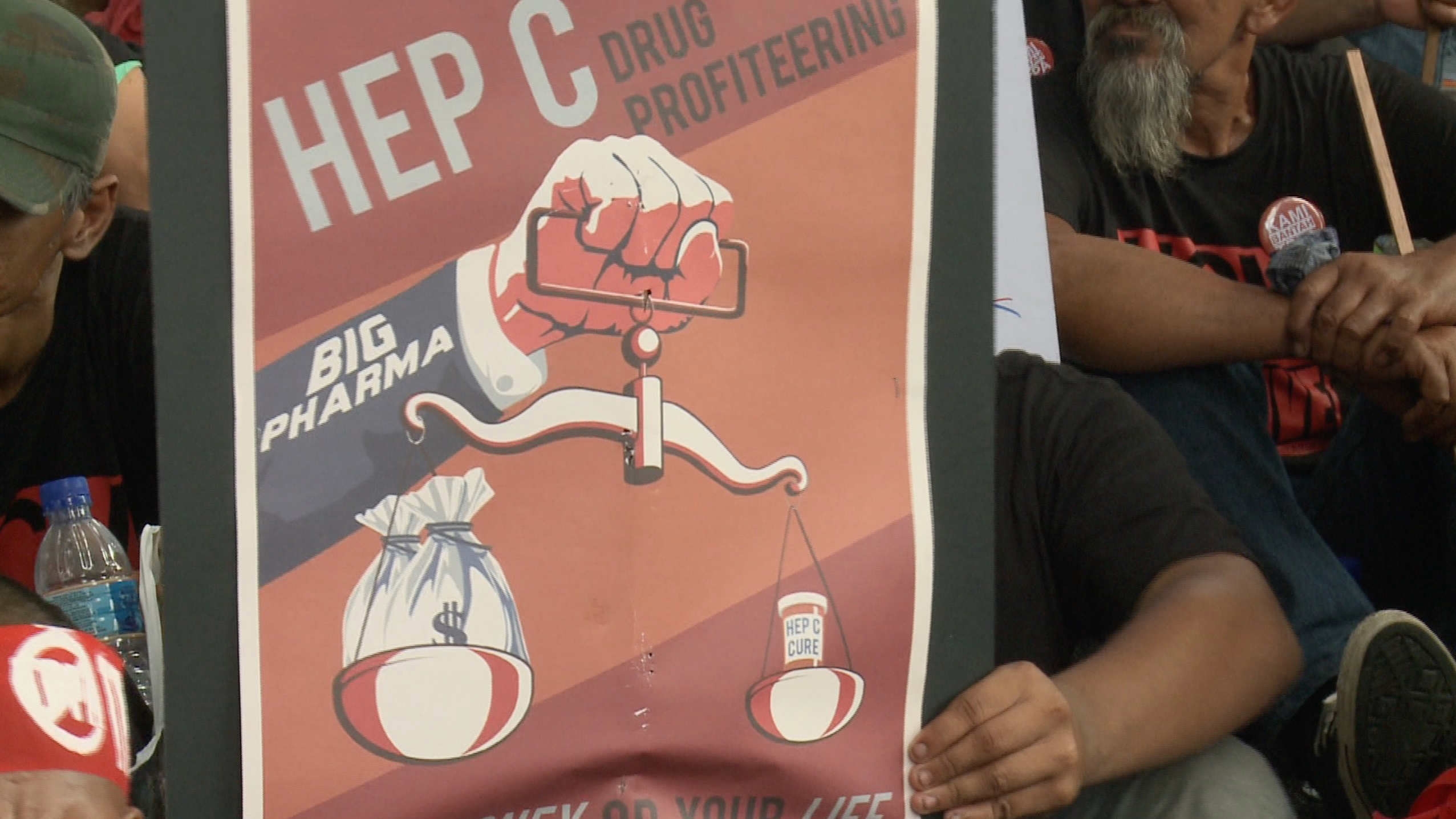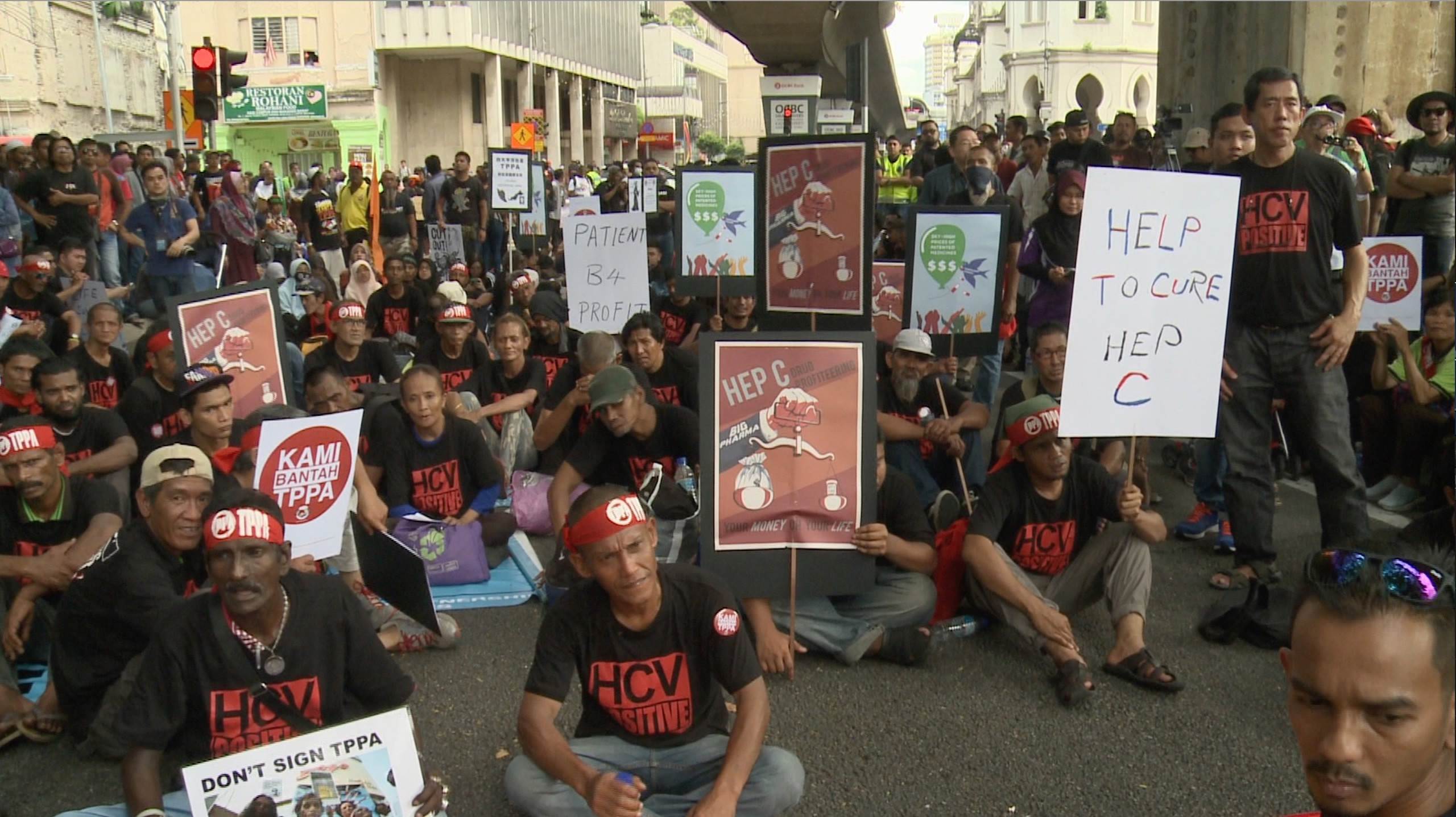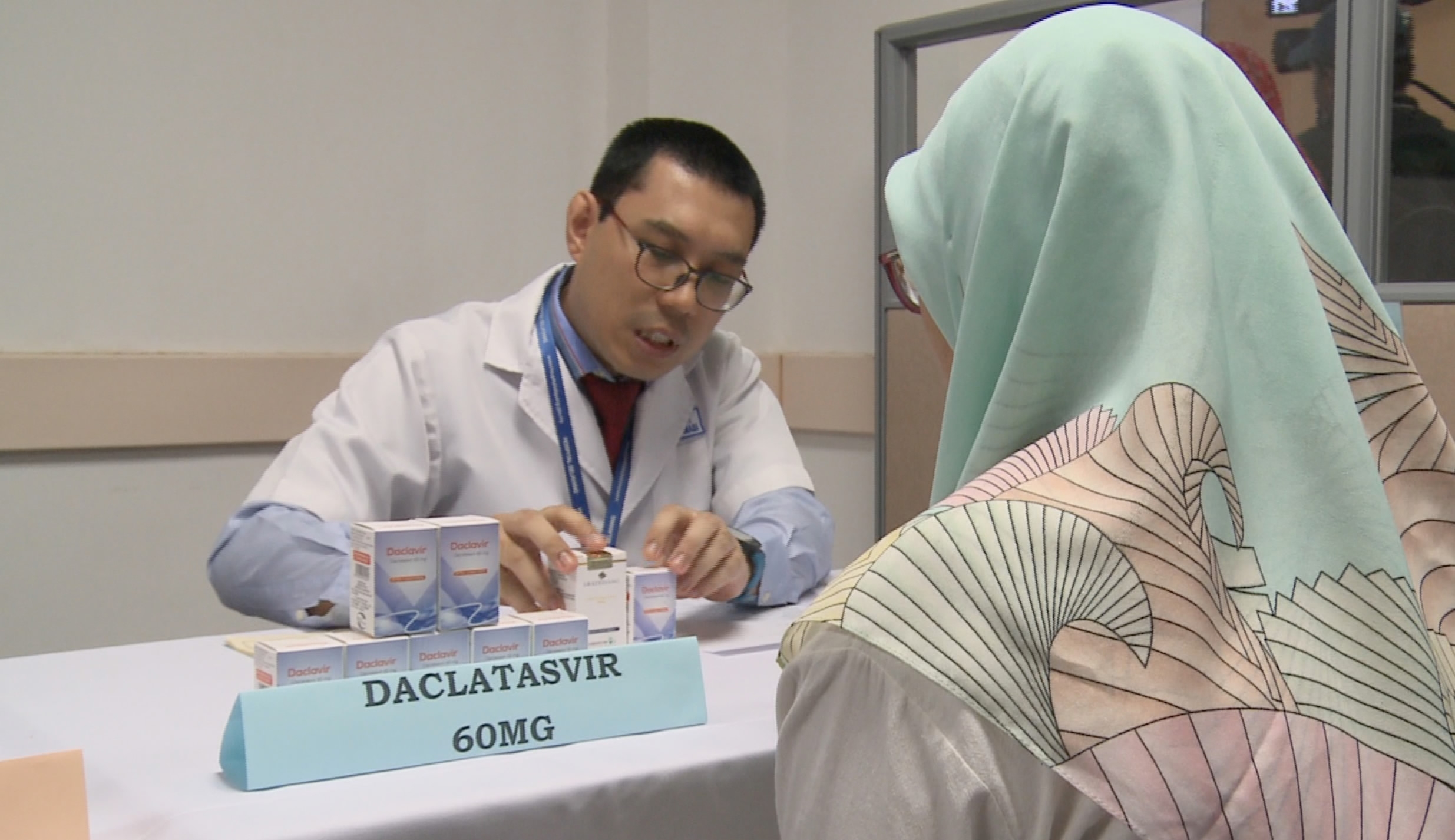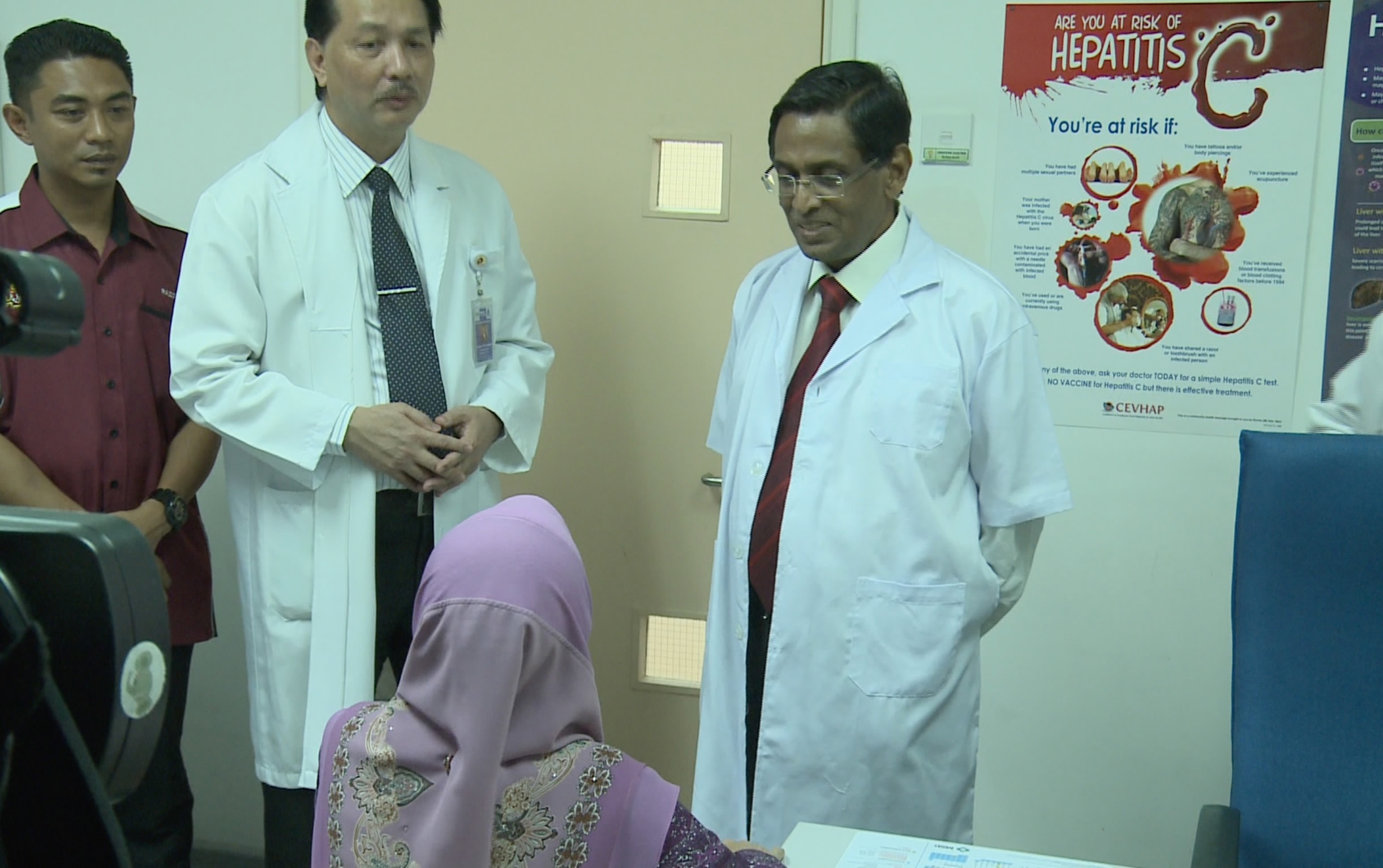
Health
20:35, 22-Mar-2018
Malaysia invokes right to generic Hep C treatment
By Rian Maelzer

Over the years, Edward Low has frequently been seen at rallies alongside socialists and opposition political parties railing Malaysia’s government of the day, and its policies.
He has been a fervent opponent of the Trans-Pacific Partnership (TPP) – especially while the United States was the driving force – fearing that it would make it harder for Malaysians to obtain life-saving generic medicines.
Low contracted HIV from a tainted blood transfusion and now has Hepatitis C as a secondary infection. He runs an NGO called Positive Malaysian Treatment Access Group, which battles for access to affordable medicines. And in that fight, it recently found an ally in the Malaysian government.

Edward Low (standing, far right) led many protests pushing for access to affordable treatments. /CGTN Photo
Edward Low (standing, far right) led many protests pushing for access to affordable treatments. /CGTN Photo
Big drug companies are willing to cut deals with developing countries to reduce the costs of patented medication. But not so with Malaysia, as a so-called middle-income country.
So with an estimated 400,000 of its people believed to be infected with Hepatitis C – a disease that if untreated usually leads to cirrhosis of the liver and liver cancer – the government acted.
It invoked what is called a compulsory license, allowing it to either import or manufacture generic versions of a key drug, sofosbuvir. In combination with another cheaper drug, it can cure up to 97 percent of Hepatitis C cases.

In combination with another drug, sofosbuvir has an extremely high cure rate. /CGTN Photo
In combination with another drug, sofosbuvir has an extremely high cure rate. /CGTN Photo
“This is a very good approach when the government is taking care of the health of the people,” Low said. “We are thankful to the government. They are working for the national interest.”
But that national interest has predictably provoked the ire of Big Pharma who have called on the United States to take punitive action against Malaysia for violating patent rules and ignoring intellectual property rights.
Malaysia’s Health Minister Dr. S. Subramaniam is undeterred. Until recently a full course of the drug sofosbuvir would cost around 13,000 US dollars for a single patient – way out of reach to the vast majority of Hep C sufferers here.
By importing the generic version of the drug from Egypt, that cost has been slashed to around 300 US dollars and the government is able to offer it in state hospitals for free.

Malaysia is importing the generic version from Egypt. /CGTN Photo
Malaysia is importing the generic version from Egypt. /CGTN Photo
“This has opened a new vista for the treatment of these patients which will actually come with a very high cure rate, which will make a major difference to their lives because not only by killing the virus but it will reduce significantly the risk of liver damage” and other terrible long-term effects, Subramaniam said.
Malaysia took similar action in the early 2000s to make sure that treatment for HIV was affordable. And both Malaysia and the World Health Organization argue that it acted within the bounds of a section of the World Trade Organization rules known as TRIPS – Trade-Related Aspects of Intellectual Property Rights.
TRIPS, Malaysia argues, allows it to access the generic version of the drug if it’s in the national interest.
“Of course we respect innovation,” the health minister said after meeting with Hepatitis C patients at a state hospital. “We respect discovery, we respect the need for patents, while we also hold to the principle that affordable medication should be made available to those who need it when there's a need for it.”

The Malaysian health minister meets with people infected with Hepatitis C. /CGTN Photo
The Malaysian health minister meets with people infected with Hepatitis C. /CGTN Photo
And in this case, the government and activist Edward Low are in agreement that there is a pressing need for it.
Previous hepatitis C treatments were fraught with side effects. But the new combination of drugs offers real hope.
“When people have access to generic medicine to treat Hep C they will get cured. When treated they can look after their families especially if they have children and can continue sending their children to school and go back to their work and have a happy family life free of fear.”
And that applies to Low himself, someone who has fought for years to make sure Malaysians like him infected with diseases such as HIV and Hepatitis C have access to affordable and effective treatments.

SITEMAP
Copyright © 2018 CGTN. Beijing ICP prepared NO.16065310-3
Copyright © 2018 CGTN. Beijing ICP prepared NO.16065310-3